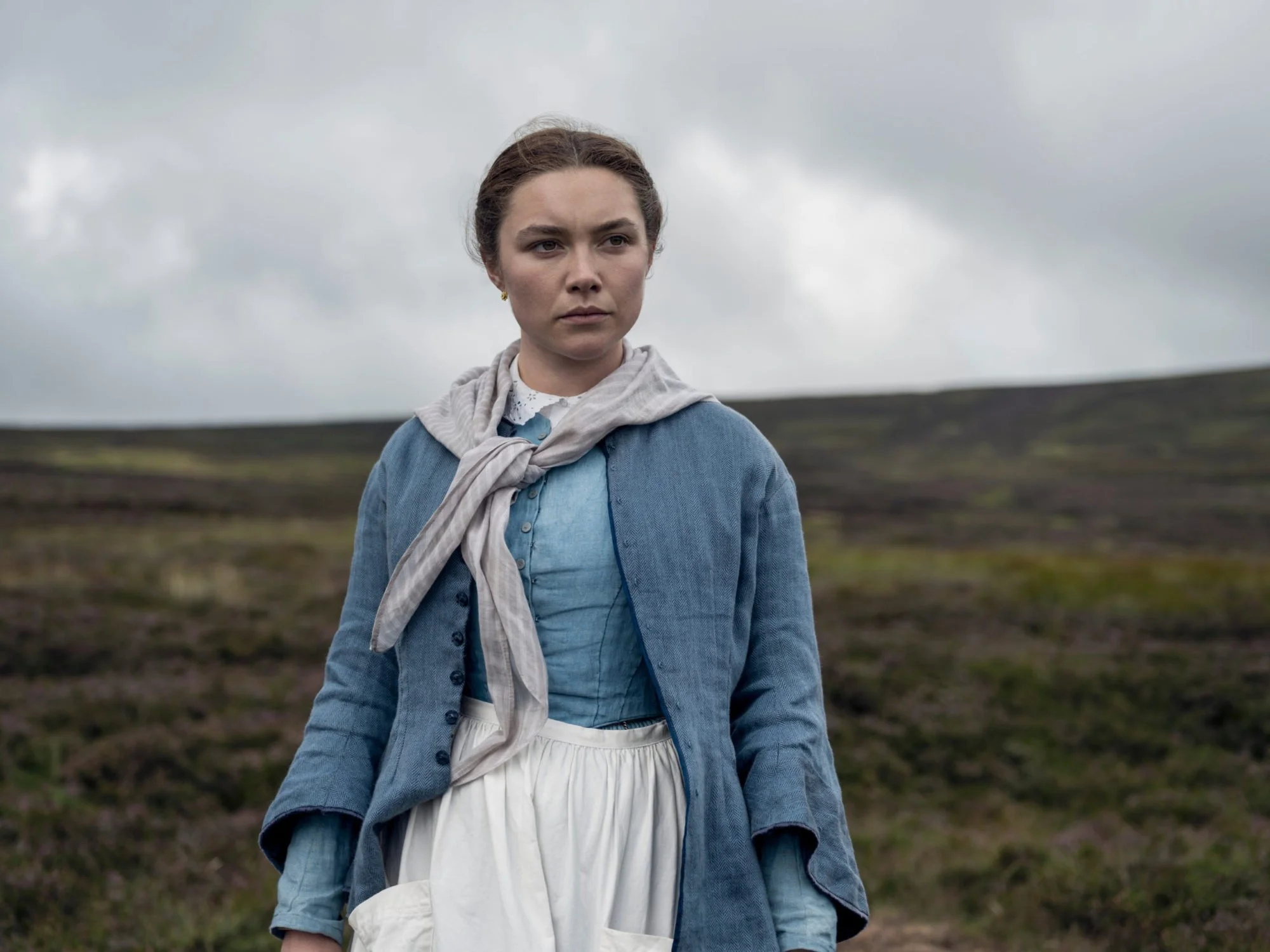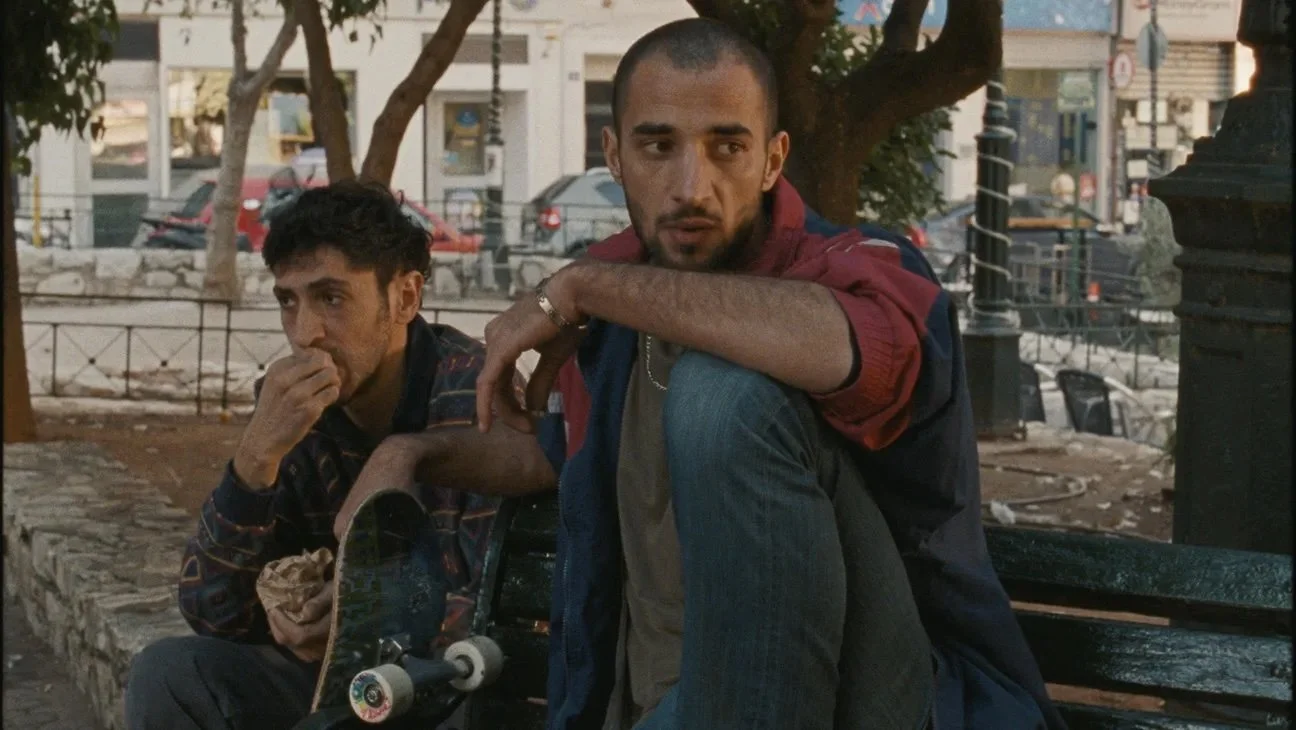2022 in review: Women took a starring role in many of the year's most compelling movies
From complex character portraits like Tár and Emily the Criminal to genre-busting works like The Wonder and Everything Everywhere All at Once, female-centric film ruled
Cate Blanchett stars as a power-wielding maestro whose Teflon image starts to fracture in Tár.
She Said
The Wonder
WOMEN—PUSHING SOCIETAL norms, fighting to be heard, wielding power, grappling with motherhood, pursuing quests, and changing the world.
In 2022, an unprecedented number of standout movies featured complex, strong women—conductors, nursemaids, journalists, and mothers; provocateurs, searchers, and rebels.
What set the year on celluloid so apart was the way that stories were told powerfully and tightly through a female point of view.
In director Maria Schrader’s She Said, about two female reporters who cracked the Harvey Weinstein case, we never saw the face of the serial abuser. Instead, we followed the New York Times’ Jodie Kantor and Megan Twohey (Carey Mulligan and Zoe Kazan) as they juggled kids and work and warded off the come-ons of guys at bars—experiences that strengthened their solidarity with and empathy for the sources they were interviewing. That was a distinct departure from the less personal procedurals of All the President’s Men or Spotlight—and helped make it a lot more affecting in the end.
Similarly, you rarely glimpse the all-powerful husbands in director Sarah Polley’s excellent Women Talking, an adaptation of Miriam Toews’s story of sexual assault in an an old-order agrarian community, and the victims who try to do something about it. (It featured at fests this fall but doesn’t officially hit Vancouver screens till early in the New Year). Instead, the girls and women who secretly meet in the hayloft (an incredible ensemble that includes Jessie Buckley, Rooney Mara, and Frances McDormand) start to find and form their voices away from their tightly assigned roles of childbearing, laundry, sewing, and cooking.
The year’s best films weren’t interested in idealizing their heroines, either. The most flawed female protagonist of 2022 was also the most powerful: in Tár, Cate Blanchett was riveting as Lydia Tár, a conductor as attentive to the tailoring of her severe white shirts as she was to the intricacies of Mahler. Witty and sharp, the Berlin Philharmonic maestro earned a Harvard PhD and was mentored by Leonard Bernstein. But her power made her reckless—not just in the way she treated her subordinates, but her violinist wife. Blanchett struck a perfect balance of arrogance, doubt, and slow-spiralling madness.
Meanwhile, in The Wonder, Florence Pugh was equally arresting as the stalwart, headstrong nurse Elizabeth, sent to “watch” one of the Victorian era’s “fasting girls”—and determine whether the daughter’s survival on water was divine intervention or some elaborate hoax. To her male superiors in the remote Irish town, Elizabeth fearlessly spoke her mind; but at night in her rooming house, we glimpsed the suffering and trauma that drove her work.
And why did we find ourselves rooting for Aubrey Plaza’s Emily the Criminal, as she tried to wheel off in a car she’d just bought with a stolen credit card? Probably because we’d seen her ground down by art-school debt, minimum-wage food-delivery jobs, and offers of unpaid internships. In her barely contained rage, she encapsulated everything about an entire generation of women who just can’t get ahead.
All those movies exemplified how so many of the year’s women-centred films defied and melded genres. Was Tár, the most exciting film in 2022, a psychological horror, an astute character portrait, or a dark look at cancel culture from a subversive new angle? As for The Wonder, it lived somewhere between gothic horror, period drama, and philosophical think piece. The fact that both were dazzlingly shot and scored added to the delirious, indefinable feel of something working its way under your skin. And we’d be remiss in this context not to mention Memoria, screened only in cinemas in 2022—Apichatpong Weerasethakul’s cinematic odyssey, with a world-travelling Tilda Swinton moving ethereally between past and present, life and death. The only accurate way to describe this experience of heightened image and sound was “waking dream”.
Perhaps no film bashed down walls more than Everything Everywhere All at Once, starring Michelle Yeoh as a stressed-out, multiverse-jumping matriarch. Writer-directors Daniel Kwan and Daniel Scheinert threw every hyper-energized idea they had into the blender, with crazy-brazen forays into sci-fi, superhero-style action, and kung fu fighting. But at its heart, beneath the cranked-up bombast, their film was a tender and aching portrait of an immigrant mother’s love, and unrealistic expectations, for her daughter. (Grab the chance to see it on the big screen January 2 and 3 at VIFF Centre, as part of its Best of 2022 series.)
Several female-centric movies this year gave rich new perspectives on motherhood. At the opposite end of the spectrum from Everything Everywhere was Céline Sciamma’s profoundly moving Petite Maman. In the gentle, exquisitely crafted French film, which opened here last spring, a little girl made a new friend in a sort of enchanted forest. The premise allowed the director to explore this question: What if we could really come to understand our mother, to know her not as a parent, but as she was as a child? The story was told tightly through the girl’s eyes, adult problems remaining just outside her understanding. In its quiet way, it was an emotionally ravaging ode to the eternal, uncontainable, and often under-expressed bonds between mothers and daughters.
The equally moving Till chose to reframe the well-known tragedy of Emmett Till, a 14-year-old Black Chicago boy lynched in 1955 Mississippi, through his mother Mamie (Danielle Deadwyler, channelling relatable grief). It was a successful move, emphasizing the child’s humanity as a beloved son and grandson—a goal reinforced by director Chinonye Chukwu's refusal to depict the act of violence itself.
The news for women goes far beyond what you saw on screen. Behind the scenes, exciting female directors like Schrader, Polley, Sciamma, Chukwu, Laura Poitras (All the Beauty and the Bloodshed), and Gina Prince-Bythewood (The Woman King)—just to name a few—are creating as much buzz as screenwriting talents like Charlotte Wells (Aftersun) and Rebecca Lenkiewicz (who adapted She Said). And think about how much composer Hildur Guðnadóttir brought to Tár and Women Talking’s scores. It all bodes well for 2023.
















